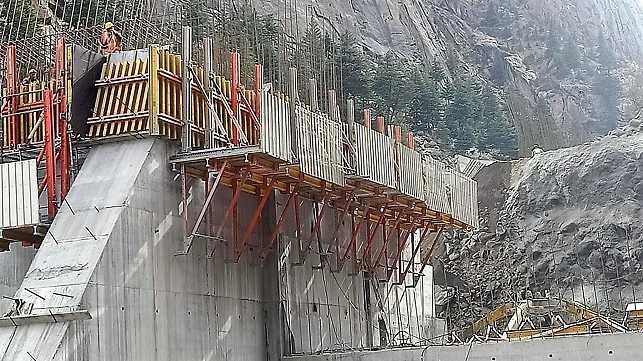News / National
Bulawayo divided over controversial Glassblock dam deal
19 Aug 2025 at 07:54hrs |
7 Views

Bulawayo councillors are at odds over the proposed Glassblock Dam project, with debates centering on cost, water security, and reliance on a single supply source. The dam, planned on the Mzingwane River in Matabeleland South, is expected to hold around 14 million cubic metres of water and is viewed as a medium-term solution to the city's worsening water shortages.
At a full council meeting earlier this month, Ward 18 Councillor Felix Madzana cautioned that overreliance on Glassblock could leave Bulawayo vulnerable. "If we amend in the manner prescribed, Glassblock becomes the sole supplier of water to the city. Let's keep our options open so that other resources remain available," he said.
Meanwhile, Ward 28 Councillor Ntandoyenkosi Ndlovu questioned the project's affordability. "My recommendation is that Glassblock should be a last resort because the cost of pumping is very high. Aquifers and supplies from Nyamandlovu are cheaper," he noted.
Deputy Mayor Edwin Ndlovu, however, urged council to pursue all available water projects without delay. "We cannot be choosers at this stage. We need water from Glassblock, Gwayi-Shangani, aquifers, and all the dams. The current sources cannot meet the demands of a growing population," he said.
Mayor David Coltart highlighted additional challenges, including the 250km pipeline and massive power requirements of the Gwayi-Shangani Dam, which would make the water three times more expensive without government subsidies. He also explained that international financiers backing Glassblock required guarantees that the city would purchase all water supplied, echoing conditions of Bulawayo's existing contract with the Zimbabwe National Water Authority (ZINWA) for Mtshabezi Dam.
With Bulawayo facing recurring shortages, councillors agree that urgent investment in multiple water projects is critical to prevent the crisis from worsening.
At a full council meeting earlier this month, Ward 18 Councillor Felix Madzana cautioned that overreliance on Glassblock could leave Bulawayo vulnerable. "If we amend in the manner prescribed, Glassblock becomes the sole supplier of water to the city. Let's keep our options open so that other resources remain available," he said.
Meanwhile, Ward 28 Councillor Ntandoyenkosi Ndlovu questioned the project's affordability. "My recommendation is that Glassblock should be a last resort because the cost of pumping is very high. Aquifers and supplies from Nyamandlovu are cheaper," he noted.
Deputy Mayor Edwin Ndlovu, however, urged council to pursue all available water projects without delay. "We cannot be choosers at this stage. We need water from Glassblock, Gwayi-Shangani, aquifers, and all the dams. The current sources cannot meet the demands of a growing population," he said.
Mayor David Coltart highlighted additional challenges, including the 250km pipeline and massive power requirements of the Gwayi-Shangani Dam, which would make the water three times more expensive without government subsidies. He also explained that international financiers backing Glassblock required guarantees that the city would purchase all water supplied, echoing conditions of Bulawayo's existing contract with the Zimbabwe National Water Authority (ZINWA) for Mtshabezi Dam.
With Bulawayo facing recurring shortages, councillors agree that urgent investment in multiple water projects is critical to prevent the crisis from worsening.
Source - Cite
Join the discussion
Loading comments…
































